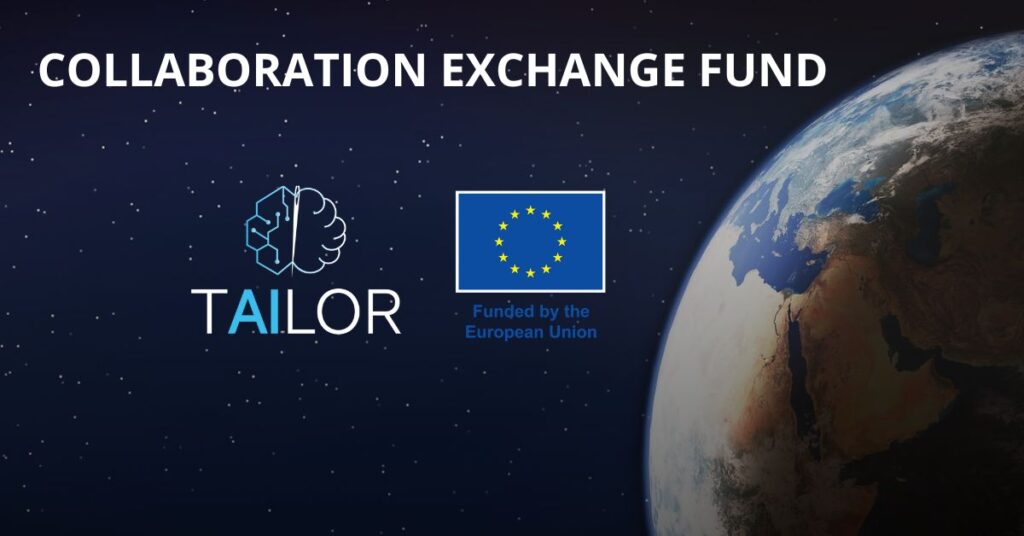We have just launched a new funding mechanism, the TAILOR Collaboration Exchange Fund (CEF). This fund is open for all TAILOR PhD students, for research visits between 1-3 months at another TAILOR organisation. The fund is intended to strenghten collaboration and increase exchanges between partners. This fund is operating under a continuous call, with cut-off dates 15 January, 15 May and 15 September.
The TAILOR Collaboration Exchange Fund (CEF)
The TAILOR Collaboration Exchange Fund (CEF) is the second TAILOR fund for scientific mobility and collaboration. The first fund, the Connectivity Fund, targets collaboration between the TAILOR partners and the wide European research community. The Connectivity fund is financed by a special funding mechanism, cascade funding or Financial Support for Third Parties (FSFTP), found in some European Calls. The CEF, on the contrary, is a mechanism for re-distribution of TAILOR budget from the lead partner LiU to the awardee’s organisation.
Who can apply, and how?
Both funds use the same Scientific Committee and calls are continuously open with 3 cut-off dates each year. The dates are not the identical, though, to even the workload for the scientific committee. For the moment, the Collaboration Exchange Fund is only open for PhD students, but this may be subject to change later on in the project. Due to the funding mechanism of this call, both the applicant and the host must be registered at a TAILOR partner organisation. Organisations that are not full partners, for example TAILOR network members, are not eligible.
Invitation from host lab and permission from sending organisation
To apply for the fund, the interested PhD students must find a host lab and obtain an invitation from a host lab. The host lab must also belong to a TAILOR partner organisation. The applicant must also obtain the permission from the TAILOR main scientist of their own organisation. The reason for this is that the support is offered as a budget transfer from the lead partner (LiU) to the sending organisation (the PhD-students home organisation). All costs related to the exchange must be paid directly by the sending organisation and declared to the EC as part of the regular reporting towards the EC. The budget transfer will be effective after the submission of a scientific report at the end of the visit.
Read more on the Collaboration Exchange Fund pages.
